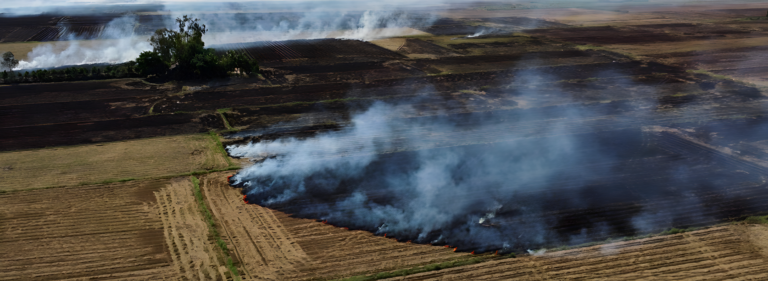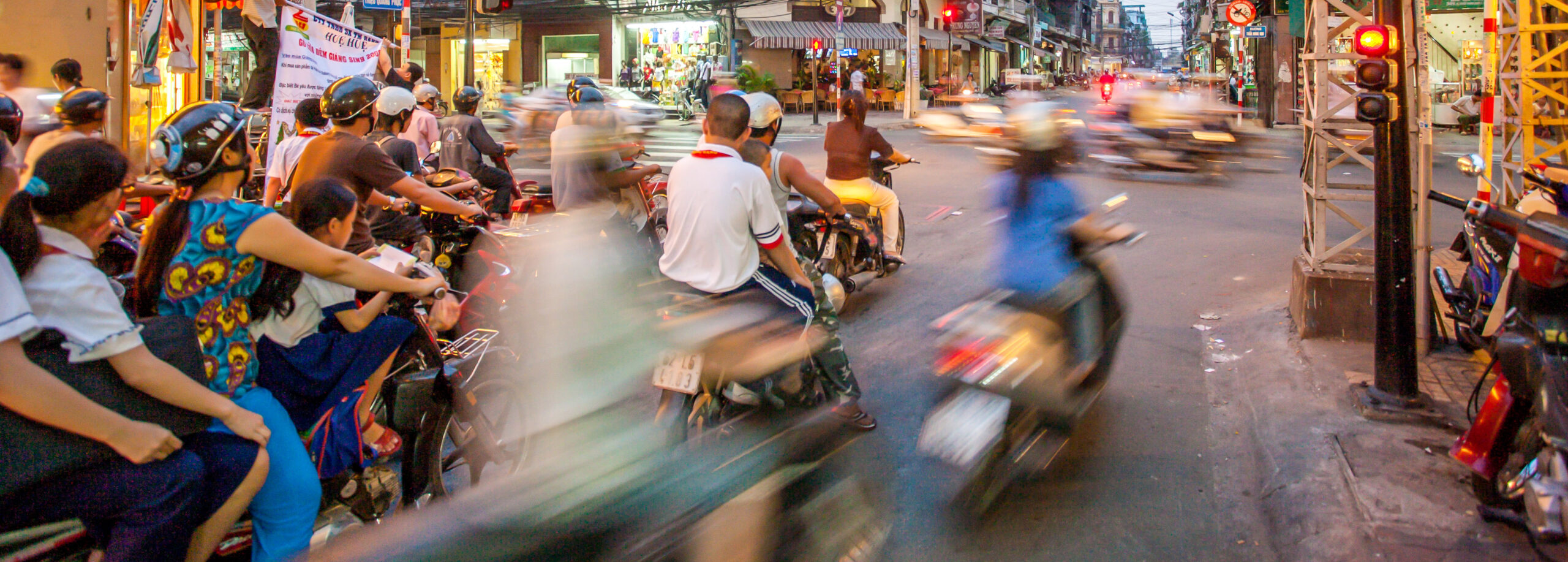
Five ways USAID’s Reducing Pollution project and partners collaborate for clean air in Vietnam
The USAID Reducing Pollution project team
Air pollution is rising in Vietnam at an alarming rate, threatening both the national economy and people’s health. In 2017, alone, 71,365 Vietnamese people died prematurely due to pollution-related causes, including 50,232 deaths from air pollution, according to a report by Global Alliance on Health and Pollution. A news report citing research by Vietnam’s own National Economy University in 2018 estimated that Vietnam suffers an estimated $10.8 to $13.2 billion in economic losses due to ambient air pollution yearly, equivalent to 5% of our GDP. In addition, the 2020 Environmental Performance Index highlighted that Vietnam lags behind its neighbors on air quality, placing 13th in the Asia-Pacific region (out of 25 countries) and 115th (out of 180 countries) globally.
Hanoi, and Ho Chi Minh City ─ commonly known as Saigon ─ are both regularly listed among cities with the world’s worst air pollution, with air quality indices hovering at “unhealthy” or even “hazardous” levels. Industrial emissions, coal and waste combustion and the steadily increasing number of vehicles are among the main causes of air pollution countrywide.
Winrock works closely with local partners in Vietnam through the USAID Reducing Pollution project to address multiple sources of air pollution, including pollution resulting from transportation, from open burning of household wastes and agricultural by-products, and emissions from craft village production. The project also supports Vietnam’s government with ongoing environmental information and data disclosure and in developing national regulations to improve air quality.
By applying a successful collective impact approach and locally-developed solutions and resources, Winrock and partners are collaborating on a wide range of activities to improve air quality in Vietnam. Here are five initiatives that are already helping to move the dial toward safer, cleaner air:
1. Reducing air pollution from open burning
Open burning of household waste, straw and other agricultural by-products in suburban areas is common in Vietnam; it’s also a major source of air pollution.
To address this longstanding issue and reduce negative impacts on both ecosystems and public health, Winrock works with three strong Vietnamese partners: 1) the Center for Environment and Community Development; 2) the Center for Capacity Development of Humanities Community (Nhan Van); and D&L Technology Integration and Consulting Joint Stock Company.
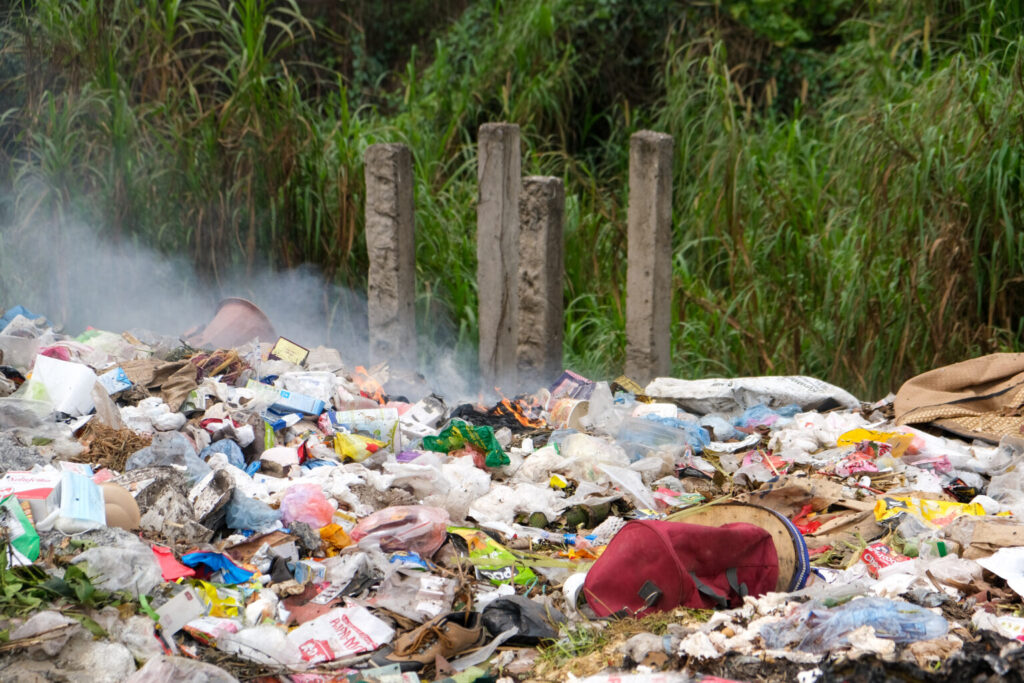
Working together, this coalition is assessing large-scale air pollution distribution in Vietnam, with the goal of identifying air pollution hotspots. Drawing on the results of this assessment, the project and partners are co-developing integrated multi-sector solutions, applying available alternative technologies (focused on hotspots) to treat agricultural waste and by-products and reduce uncontrolled, open burning. This first-of-its kind initiative is also measuring the impact of air pollution on community’s health and supporting the development of a new air quality management policy to reduce the risk of air pollution on public health.
2. Reducing environmental pollution at metal processing and recycling villages
Binh Yen village in Nam Dinh province is located near Vietnam’s world-famous Red River. There, families from 170 households work intensively in the aluminum recycling industry, processing an impressive 400 tons of waste each month.
However, the most popular method of metal recycling in the village is smelting and condensing ─ a process that relies on the use of outdated and highly inefficient furnaces. Alarmingly, the smoke and other emissions generated by these furnaces is literally life-threatening to villagers and others who live in surrounding areas.
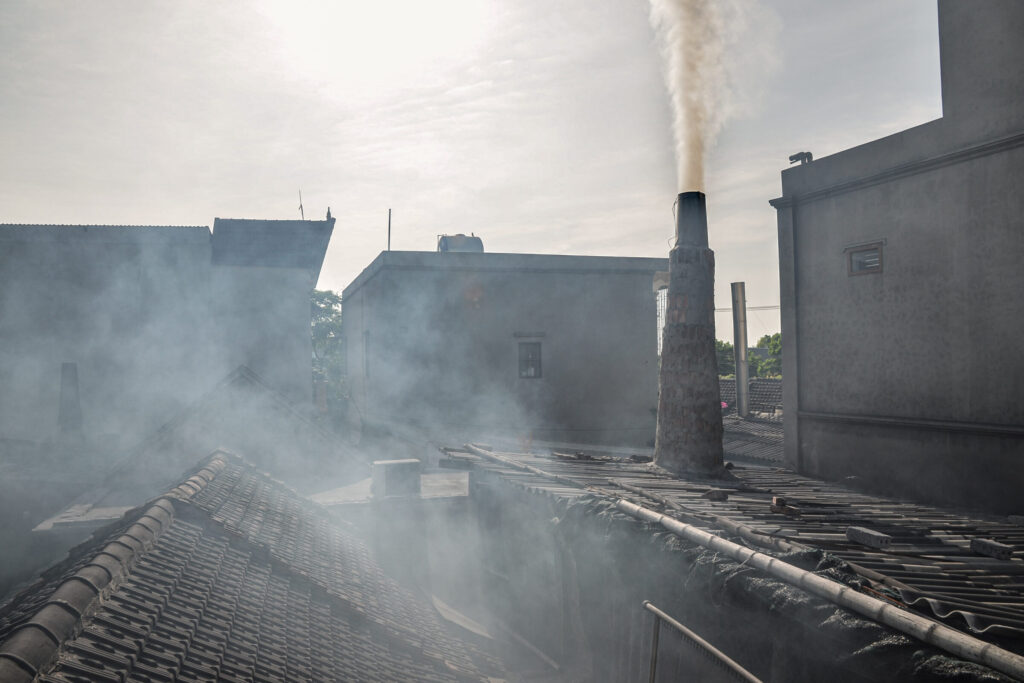
The USAID Reducing Pollution project is working with key partners on a long-needed plan to clean up the industry, starting with air pollution. By introducing and applying appropriate technologies, new/best environmental practices and with policy support, the project and partners including the Institute for Environment and Sustainable Development and Bach Khoa Green Technology and Environment Company Limited are establishing and piloting a production process improvement model. Targeted, appropriate technologies and BEPs are now being introduced in local manufacturing establishments and households in the village. Drawing on the pilot’s results, the technologies and practices will serve as a model for sharing with other manufacturing establishments and households, both in Binh Yeh and across other craft villages in the northern region of Vietnam. The initiative will support development of additional environmental protection measures for manufacturing establishments and households, as well as an environmental protection plan for metal processing and recycling craft villages. Taken together, these actions will transform and promote the development of new, sustainability-focused craft villages in Vietnam.
3. Researching automobile emissions and developing a roadmap for nationwide regulations
Recently, the number of automobiles in Vietnam has increased rapidly, mirroring the expansion of an economy that some reports cite as among the fastest-growing in the world. According to the Vietnam Ministry of Transport, in 2022 Vietnam had nearly 5 million registered cars; the government reports emissions from both motorbikes and cars as accounting for around 70% of the air pollution sources.
Currently, Vietnam’s Ministry of Natural Resources and Environment is developing draft legislation to regulate emission levels of automobiles, expected to take effect by late 2023. MONRE is responsible for creating a roadmap to enact the new regulations, which require automobiles in circulation to meet new, stricter emissions standards.
To assist with the process, USAID Reducing Pollution is supporting the government, working with two critical local partners: the Institute of Technology Development and BKGreenTech. Together, we are conducting research to assess application of current regulations on automobile emission levels both in other countries and in Vietnam, where we are analyzing existing automobile emissions data. This analysis includes conducting emission testing and collecting data on 1,000 automobiles in circulation in Hanoi and Ho Chi Minh cities. Based on the research results, ITD and BKGreenTech will help develop the roadmap for application of new National Technical Regulations on auto emissions, for submission by MONRE to the prime minister.
4. Supporting the creation of new regulations on management of air quality
In Vietnam, lack of coordination and cooperation among and between government agencies and local communities in different regions has slowed the overall response to the country’s urgent air pollution problems – including some of Vietnam’s worst pollution incidents.
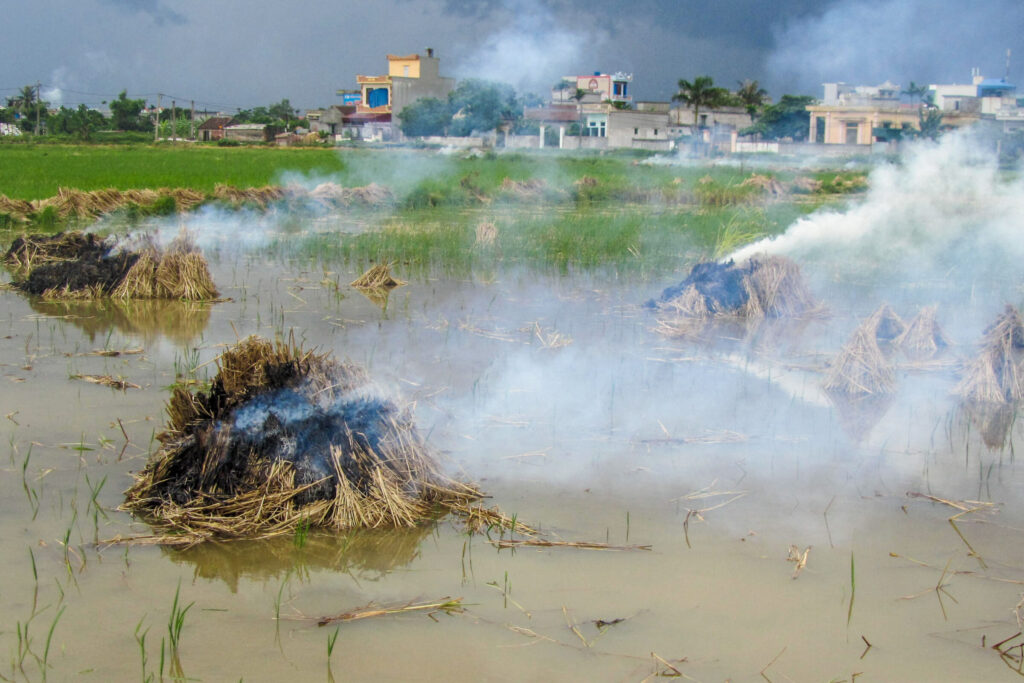
To solve this issue, MONRE’s Pollution Control Department in 2023 began developing a set of new regulations for “coordination and measures to manage inter-regional and inter-provincial air quality management.” Between now and 2024, the PCD is focused on developing formal mechanisms for improved cooperation for economic zones both in the north (in seven different provinces) and in the south (covering eight additional provinces). These new regulations will create a critical foundation to enable local stakeholders to develop their own plans, mobilize resources and strengthen regional capacity to respond to air pollution incidents.
Additionally, the project is supporting the PCD to develop specific guidance around emergency measures for the most serious air pollution events, covering both the central provinces and cities in Vietnam. These guidelines will provide information on current preparedness levels and relevant measurements to reduce air pollution incidents based on national and international experience.
5. Developing and operating the Transparent Environmental Data Disclosure Platform
Emissions from industrial parks are a main contributor to air pollution in Vietnam. Currently, Vietnam’s 2020 Law on Environmental Protection requires such parks ─ and producers located inside them ─ to provide environmental data on air emissions to local authorities. However, because this information is often not fully digitalized and disclosures and data are often not shared publicly, it is challenging for authorities and communities to properly monitor environmental pollution levels.
Via the USAID Reducing Pollution Project, Winrock is supporting the IDH – Sustainable Trade Initiative and Nothern Center for Environmental Monitoring to work with Provincial Departments of Environment and Natural Resources and key private sector partners on development of a new, transparent Environmental Data Disclosure Platform. This platform will encourage businesses to publicize their environmental information and allow local governments and communities to directly monitor point sources of pollution in their own geographies. The TEDP will help to fill information gaps in Vietnam, starting with at least four industrial parks and 50 corporations to share data on air emissions and industrial wastewater discharges in real-time, before the system is launched nationwide.
Related Projects
